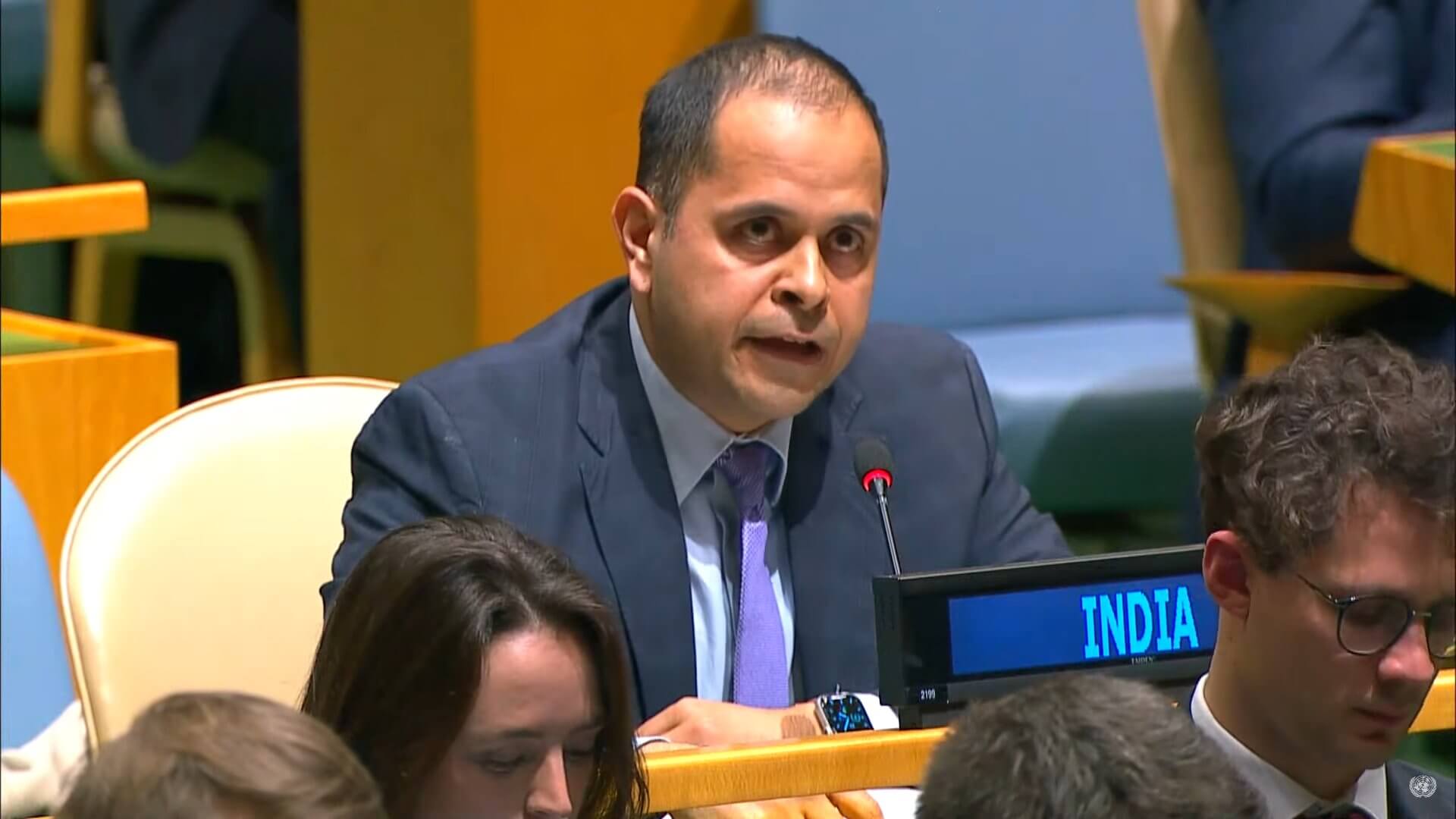Pratik Mathur, Counsellor for India’s Permanent Mission to the UN, said on Wednesday that the five permanent members of the UN Security Council (UNSC) have used their veto for the past 75 years to further their “political considerations” rather than being guided by their “moral obligations.”
Overview
Mathur made the statement during his address at the UN General Assembly (UNGA) regarding the “Use of the veto” on 26 April. He criticised the UNSC’s veto privilege for violating the concept of the sovereignty and equality of UN members.
He added, “The exercise of veto is driven by political considerations, not by moral obligations. As long as it exists, the member state or member states, who can exercise the veto, will do so, irrespective of the moral pressure, as we have seen in the recent past.”
The UNSC has 15 members — five permanent members and 10 temporary members with two-year terms. The five permanent members, namely the US, the UK, France, China, and Russia, have veto powers to block any resolution in the UNSC.
#WATCH | Persisting&repeated calls for regime change; external support to armed groups in Syria,complicated the situation & resulted in the growth of terrorism: Pratik Mathur, Counsellor in India's Permanent Mission to UNGA on UNSC Arria-formula meeting on accountability in Syria pic.twitter.com/FAYjwgX0it
— ANI (@ANI) November 30, 2021
In this regard, Mathur emphasised five necessary reforms at the UNSC — membership categories, the veto issue, regional representation, an increase in the number of Council members, and questions about the UNSC’s working and relationship with the UNGA.
“Veto Initiative”
Mathur’s statement comes just a year after the “Veto Initiative” was launched in the UNGA, where it adopted the “Standing mandate for a General Assembly debate when a veto is cast in the Security Council.”
As a result, a UNSC member’s exercise of their veto power will trigger a UNGA meeting, where members can scrutinise and discuss the veto.
The initiative was launched in light of Russia’s war in Ukraine, during which Moscow has repeatedly used its veto to block actions by the UNSC.
During the discussions, India had expressed “serious concerns” about the lack of inclusivity in such “take it or leave it initiatives” that exclude the concerns of other members.
Mathur also said that the resolution showed the organisation’s “piecemeal” approach to reforms in the UNSC, highlighting “one aspect while ignoring the root cause of the problem.”
Latest UN Data says India will become the most populated country on the planet by mid year. It's already the 5th largest economy. Effectively India's absence at UNSC makes the body defunct. https://t.co/IaZXyDeGDg
— Sidhant Sibal (@sidhant) April 19, 2023
To this end, he criticised the UNSC’s structure, wherein only five members have been given the power of veto, which he said, “perpetuated the mindset of the Second World War ‘to the victor belong the spoils’.”
He echoed a statement by Africa, demanding that the veto power should be “abolished” or at least be “extended to new permanent members.” Mathur added, “Extension of veto to new members, in our view, will have no adverse impact on the effectiveness of an enlarged Council.”
India’s Calls for Multilateral Reform
Mathur’s statement emboldens India’s repeated calls for reforms in multilateral organisations, particularly the UNSC. Earlier this week, India’s UN envoy Ruchira Kamboj addressed a debate on “Effective Multilateralism through the Defence of the Principles of UN Charter.” She reiterated New Delhi’s calls for “major course correction” in the UNSC’s permanent membership, which excludes the world’s largest democracy.
She further highlighted that the UNSC’s format makes five countries more equal than others and allows them to “ignore the collective will” of the wider membership. Kamboj warned that this “anachronistic mindset” will result in other members losing faith in the UNSC.

